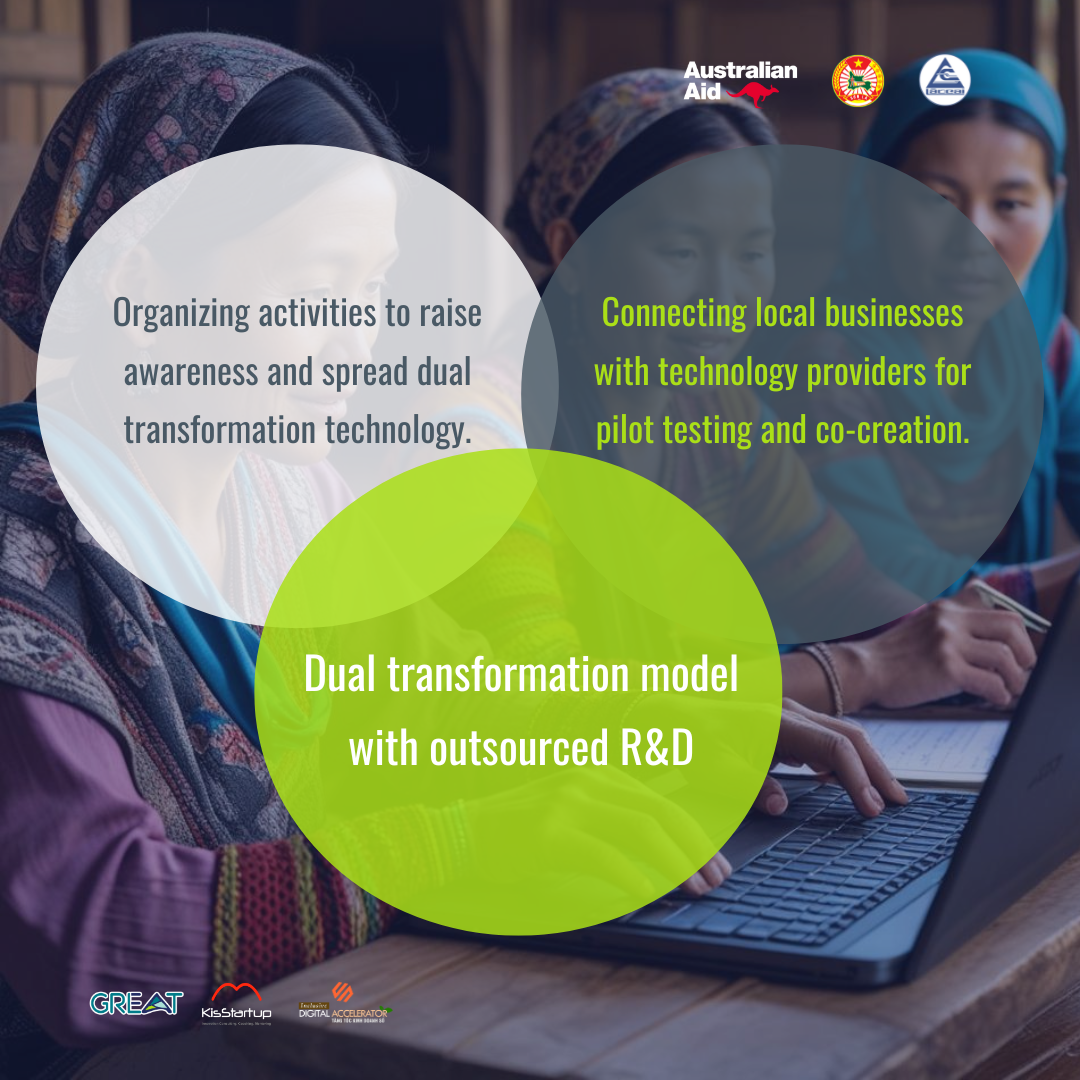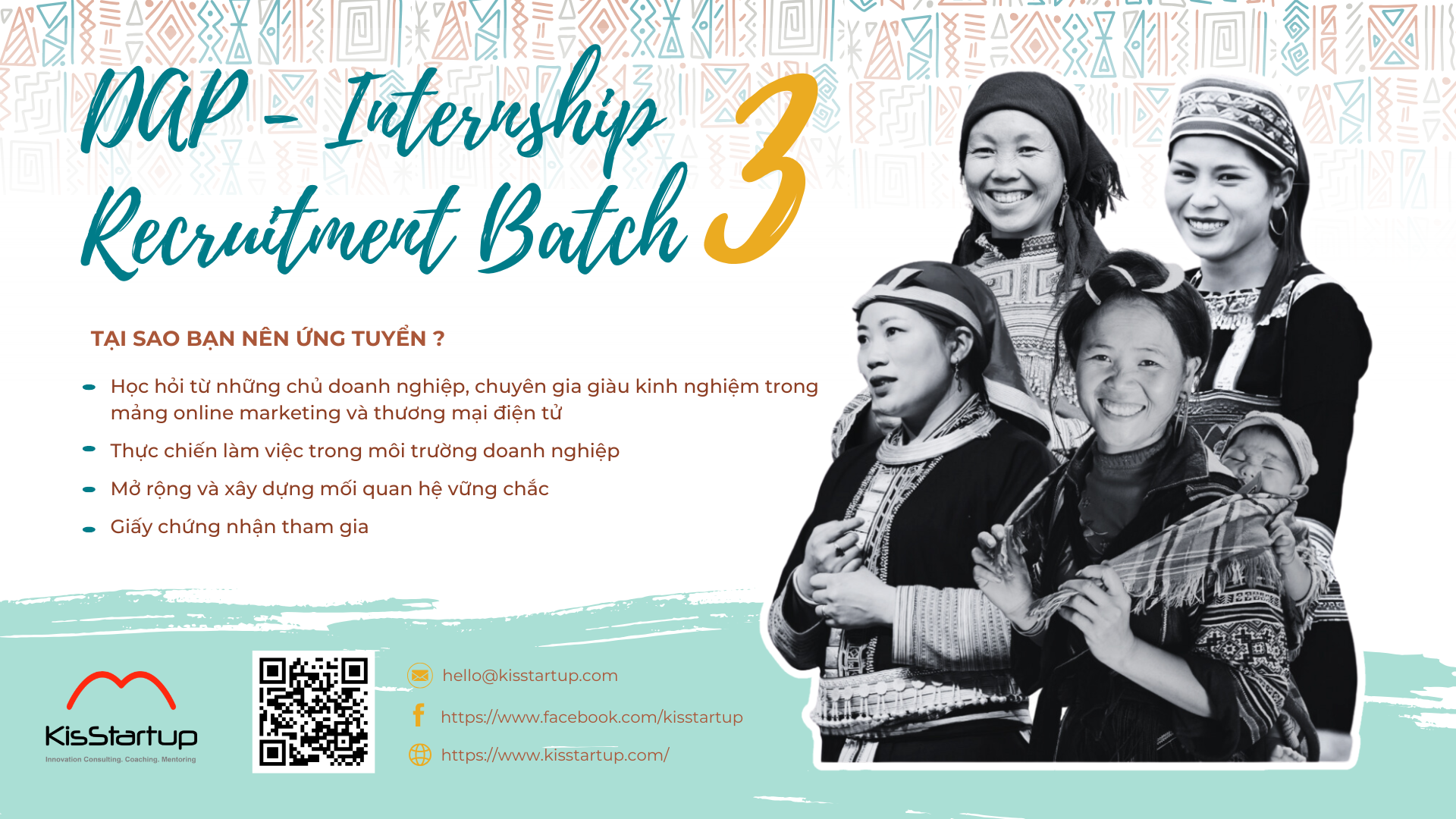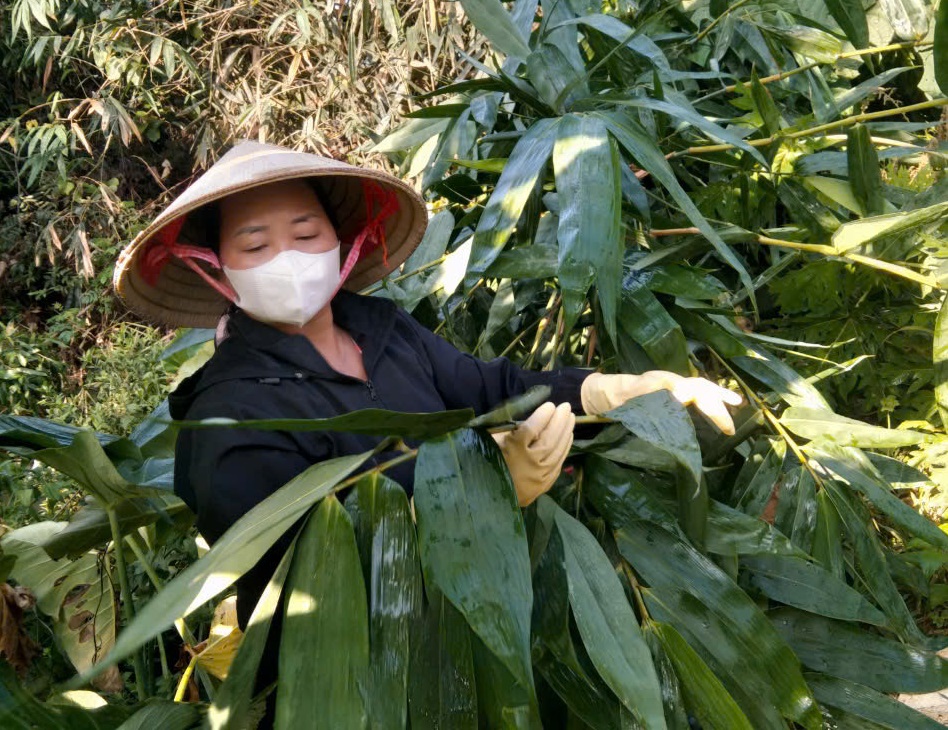Unraveling the Knot – Lean Digital Transformation: When Cooperatives Become the Center of the Digital Ecosystem in Lao Cai
On May 8, 2025, at the Lao Cai Galaxy Hotel, the event "Unraveling the Knot – Lean Digital Transformation for Cooperatives and Enterprises" took place in an exciting atmosphere, bringing together 58 cooperatives from various sectors across the province, along with the active participation of 15 lecturers and students from the Thai Nguyen University branch in Lao Cai. The event was part of the "Strengthening the Inclusive Digital Transformation Ecosystem – IDAP" project and serves as a prime example of how to drive digital transformation with cooperatives at the center, through the synergy of stakeholders in the ecosystem: educational institutions, service-providing businesses, development support organizations, and the cooperatives themselves.
One of the highlights of the program was the "alternating seating" model, where students, lecturers, and cooperative leaders sat together to practice using the "hands-on" approach. Instead of abstract lectures or vague concepts, topics such as using AI for product pricing, choosing suitable accounting software, or identifying legal risks in digitization were concretized with directly applicable tools that were easy to understand and implement. This direct, practical interaction between academia and cooperatives not only helped learners feel more engaged and receptive but also provided students with the opportunity to experience real-world scenarios – something that traditional curricula often lack.
The program was not just a simple training course but became a three-dimensional connection space: between cooperatives, between cooperatives and academia, and especially between cooperatives and digital transformation solution providers. Notably, the participation of ACMAN – a digital accounting service provider with experience in implementing digital tools for small businesses – brought clear insights into the potential and practical implementation methods. A representative from ACMAN shared that they see significant room for development in the Lao Cai market and committed to continuing their partnership with cooperatives in the journey to save both labor and costs through technology.

Feedback from attendees is clear evidence of the success of this approach. Many expressed surprise and excitement, saying the content was "not distant, closely tied to the business, and what we learn we can immediately understand and apply." The atmosphere was so positive that by the end of the program, many attendees stayed behind to continue discussions, reflecting the genuine desire of cooperatives to find the right path for the future.
The event also highlighted an important point: to make digital transformation more than just a slogan, the serious involvement of the entire ecosystem is necessary. Local authorities, through the Lao Cai Cooperative Alliance, played the role of a connector, gathering forces and creating favorable conditions for implementation. Educational institutions provided knowledge and young, enthusiastic human resources. Technology companies brought practical tools and solutions. And most importantly, cooperatives – those directly involved in production and operations – have become the center and main implementers, rather than merely being recipients of externally imposed solutions.
Right after the event, the ripple effect became evident. Over 40 other cooperatives in the province are continuing to participate in the “Unraveling the Knot” program in the upcoming period. From familiarizing themselves with tools like ChatGPT and Grok, attendees began to realize that digital transformation is no longer a luxury but entirely feasible with the right roadmap and proper support.
We are proud to have played a small part in helping cooperatives in Lao Cai “unravel the knot” in a lean, practical, and effective way. The success of this event serves as a reminder: only when the entire ecosystem is united can digital transformation truly take root and develop sustainably, driven by the needs of businesses.
ABOUT THE IDAP PROJECT
IDAP (Inclusive Digital Acceleration Program) – Strengthening the Inclusive Digital Transformation Ecosystem for MSMEs focusing on agriculture and tourism in Lao Cai and Son La provinces is a project funded by GREAT (Gender Equality through Enhancing Agricultural Production Efficiency and Tourism Development), with KisStartup as the main implementation partner from 2024 to 2027.
The “Gender Equality through Enhancing Agricultural Production Efficiency and Tourism Development in Lao Cai and Son La Provinces” (GREAT) project is an initiative funded by the Australian Government and managed by Cowater International. The first phase of GREAT was implemented from 2017-2022, and the second phase (GREAT 2) will be carried out from 2024-2027 with a total investment of 67.4 million AUD from the Australian Government.
For inquiries, please contact:
Fanpage: https://www.facebook.com/kisstartup
Website: https://www.kisstartup.com/
Email: hello@kisstartup.com
Phone: (+84) 0392161403 (Mr. Hieu)






